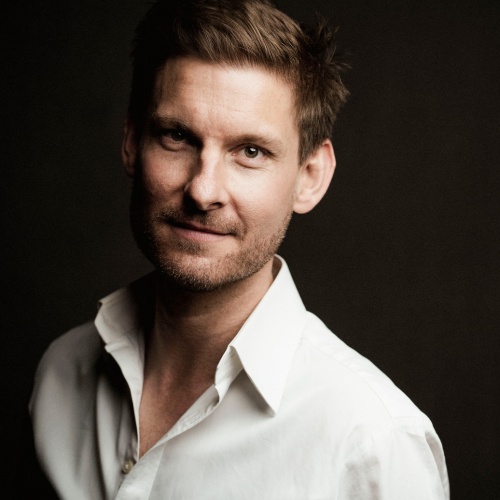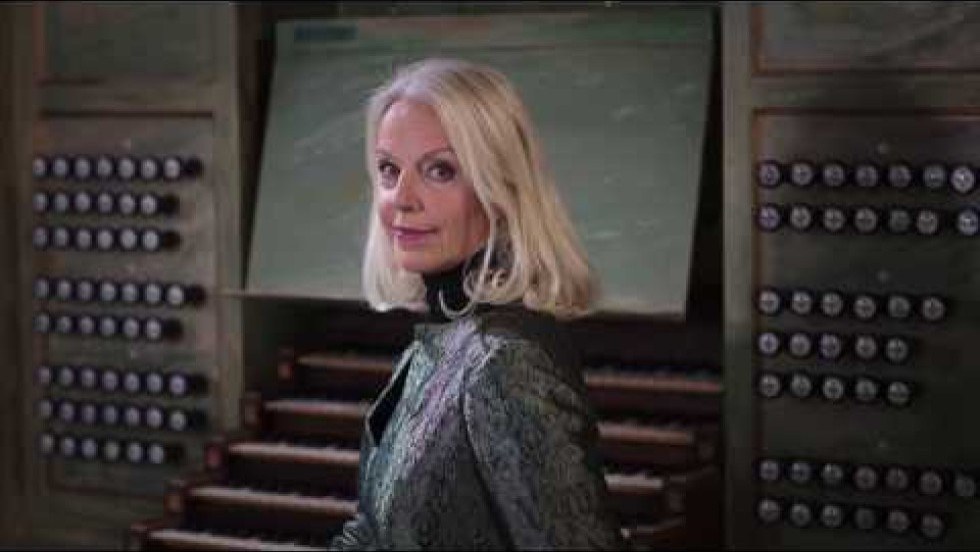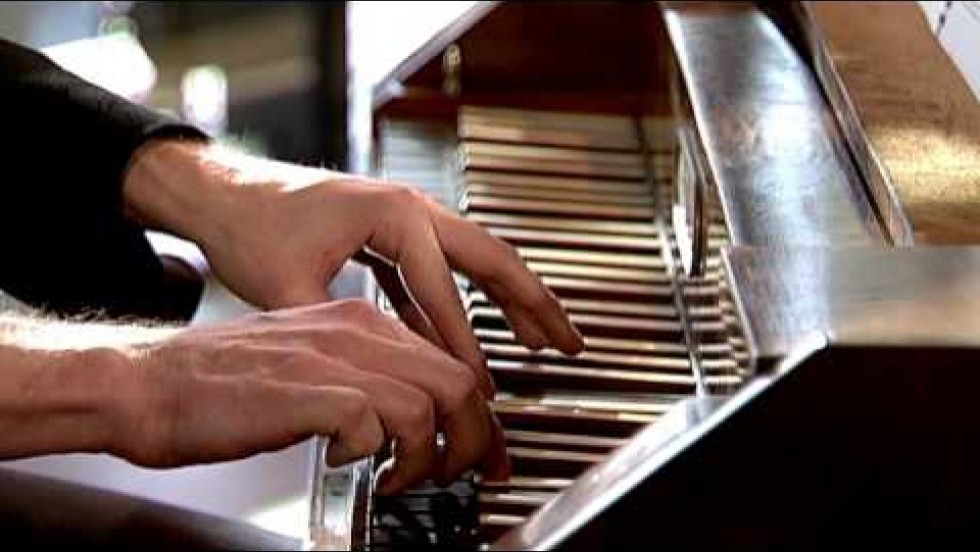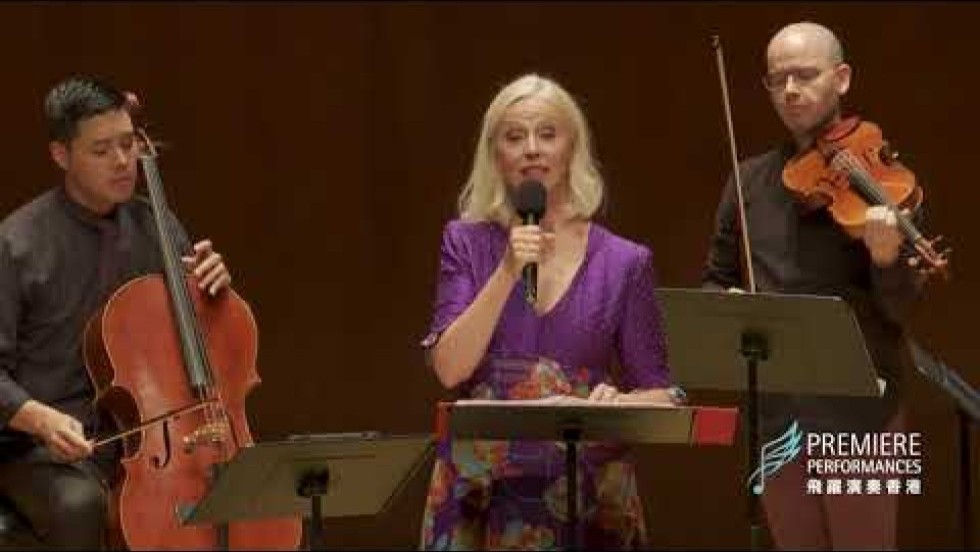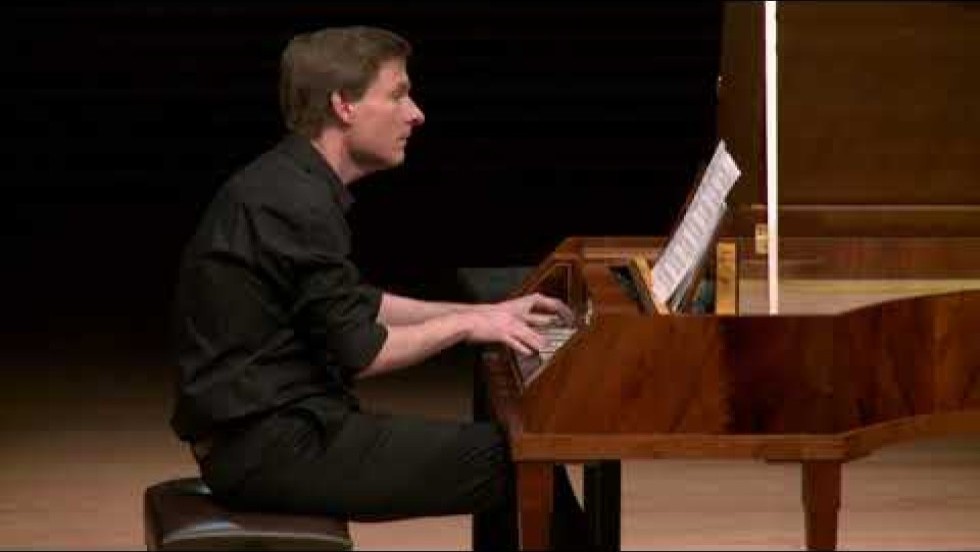Anne Sofie von Otter, mezzo-soprano, and Kristian Bezuidenhout, piano
Cookie Notice
This site uses cookies to measure our traffic and improve your experience. By clicking "OK" you consent to our use of cookies.
Elegant Swedish mezzo-soprano Anne Sofie von Otter is universally recognized for her versatility, zest for unconventional partnerships, and superlative skill at conveying a work’s textual meaning through her insightful musical interpretation. South African-born Australian pianist Kristian Bezuidenhout, one of today’s most exciting keyboard artists, collaborates with von Otter on a program featuring selections by Schubert and Lindblad, as well as a Mozart selection for piano.
Von Otter, an audience favorite for major roles in the world’s largest opera houses throughout her storied career, truly shines in the intimate setting of a song recital. In this performance, Bezuidenhout and von Otter create an atmosphere where subtlety, detail, and delicacy showcase the interplay of text, music, meaning, and drama in a compelling and unforgettable recital.
Program
Der Einsame, D.800
Die Liebe hat gelogen, D.751
Der Geistertanz, D.116
Der Tod und das Madchen, D.531
Der Einsame, D.800
Die Liebe hat gelogen, D.751
Der Geistertanz, D.116
Der Tod und das Madchen, D.531
Rondo in A minor, K. 511 (Mr. Bezuidenhout)
Listeners and critics will often note, sometimes in surprise, that the overwhelming characteristic of Mozart's Rondo in A minor K.511 is melancholy. While we can't know what mood the composer intended to convey in writing this piece, Mozart's reputation as subtle, logical, lighthearted, and generally pleasing can make us perk up at any perceived strong emotion bleeding through the surface of his music. Written in 1787 just before the composition of Don Giovanni, though, the context of the Rondo in Mozart's late career makes its intensity more understandable, and the reality is that, for Mozart, passion was often the intended object of his music making throughout his career (see his Fantasia in D minor, K.397 for another example in his keyboard works). It is one of the characteristics that made him such an attractive source for later generations of composers in the Romantic Era. Indeed, critics sometimes note the Rondo's forward-looking Chopin-esque content. Mozart, however, was not a fortune teller and could only look around for inspiration. In this case, two members of the Bach family stand out: J.S. Bach, whose intricate music filled with layered melodies Mozart became increasingly familiar with in the 1780s; and C.P.E. Bach, whose passionate, often purposefully chaotic music was emblematic of the pre-Romantic Sturm und Drang movement, and who was a constant inspiration to Mozart. This piece is a skillful mix of both aesthetics, equal parts elaborate and intense, and a rewarding, surprising listen from start to finish.
© Connor Buckley
Rondo in A minor, K. 511 (Mr. Bezuidenhout)
Listeners and critics will often note, sometimes in surprise, that the overwhelming characteristic of Mozart's Rondo in A minor K.511 is melancholy. While we can't know what mood the composer intended to convey in writing this piece, Mozart's reputation as subtle, logical, lighthearted, and generally pleasing can make us perk up at any perceived strong emotion bleeding through the surface of his music. Written in 1787 just before the composition of Don Giovanni, though, the context of the Rondo in Mozart's late career makes its intensity more understandable, and the reality is that, for Mozart, passion was often the intended object of his music making throughout his career (see his Fantasia in D minor, K.397 for another example in his keyboard works). It is one of the characteristics that made him such an attractive source for later generations of composers in the Romantic Era. Indeed, critics sometimes note the Rondo's forward-looking Chopin-esque content. Mozart, however, was not a fortune teller and could only look around for inspiration. In this case, two members of the Bach family stand out: J.S. Bach, whose intricate music filled with layered melodies Mozart became increasingly familiar with in the 1780s; and C.P.E. Bach, whose passionate, often purposefully chaotic music was emblematic of the pre-Romantic Sturm und Drang movement, and who was a constant inspiration to Mozart. This piece is a skillful mix of both aesthetics, equal parts elaborate and intense, and a rewarding, surprising listen from start to finish.
© Connor Buckley
Aftonen
Nattviolen
Mån tro, jo, jo!
Vaggvisa
Bröllopsfärden
Aftonen
Nattviolen
Mån tro, jo, jo!
Vaggvisa
Bröllopsfärden
Nur wer die Sehnsucht kennt, D.877/4
Heiss mich nicht reden, D.877/2
So lasst mich scheinen, D.877/3
Allegretto quasi andantino from Sonata in A minor, D.537/II (Mr. Bezuidenhout)
As with the Mozart piece, Franz Schubert’s Allegretto quasi andantino from his Piano Sonata in A minor is a rondo, beginning with a section that is returned to multiple times after contrasting interludes. The form in letter notation could be referred to as ABACA, where A is the first theme. Schubert was a clever composer who, with the strength of his melodies and the pristine application of formal structures, could make his unconventional material seem casual, even refreshing. In this piece, the key structure between sections is unusual, but it is so deftly applied that it simply lifts the listener’s ear and keeps them engaged. Beginning with the first theme in E major, the piece transitions to C major before modulating back to the first theme, this time in F major to make it feel new. Moving then to D minor in the third theme, Schubert transitions back to the original theme in E major again to ground the listener in familiarity. At whatever level the listener comprehends the piece, it will feel like a journey.
© Connor Buckley
Romanze: Der Vollmond strahlt, D.797
An den Mond, D.193
Andante from Sonata in A major, D. 664 (Mr. Bezuidenhout)
Although Schubert’s Andante from his Piano Sonata in A Major is very much in his own style, the piece follows what is a prominent aspect of Beethoven’s work: maximum effect can and should be achieved through a minimum of material. Schubert does this masterfully. Within the first few seconds of the piece, the listener has heard almost all of the composer’s thematic content. Like with the previous two rondos on this program, Schubert constantly returns to his original theme, though the form is looser this time as it extracts as much as possible from these small nuggets of information. The effect of this is, like in well acted theater, as if the performer themselves does not know what will happen next. Schubert, then, brings both performer and listener here along a journey to discover how the music will go.
© Connor Buckley
Nachtstück, D.672
Die Taubenpost, D.957
Nur wer die Sehnsucht kennt, D.877/4
Heiss mich nicht reden, D.877/2
So lasst mich scheinen, D.877/3
Allegretto quasi andantino from Sonata in A minor, D.537/II (Mr. Bezuidenhout)
As with the Mozart piece, Franz Schubert’s Allegretto quasi andantino from his Piano Sonata in A minor is a rondo, beginning with a section that is returned to multiple times after contrasting interludes. The form in letter notation could be referred to as ABACA, where A is the first theme. Schubert was a clever composer who, with the strength of his melodies and the pristine application of formal structures, could make his unconventional material seem casual, even refreshing. In this piece, the key structure between sections is unusual, but it is so deftly applied that it simply lifts the listener’s ear and keeps them engaged. Beginning with the first theme in E major, the piece transitions to C major before modulating back to the first theme, this time in F major to make it feel new. Moving then to D minor in the third theme, Schubert transitions back to the original theme in E major again to ground the listener in familiarity. At whatever level the listener comprehends the piece, it will feel like a journey.
© Connor Buckley
Romanze: Der Vollmond strahlt, D.797
An den Mond, D.193
Andante from Sonata in A major, D. 664 (Mr. Bezuidenhout)
Although Schubert’s Andante from his Piano Sonata in A Major is very much in his own style, the piece follows what is a prominent aspect of Beethoven’s work: maximum effect can and should be achieved through a minimum of material. Schubert does this masterfully. Within the first few seconds of the piece, the listener has heard almost all of the composer’s thematic content. Like with the previous two rondos on this program, Schubert constantly returns to his original theme, though the form is looser this time as it extracts as much as possible from these small nuggets of information. The effect of this is, like in well acted theater, as if the performer themselves does not know what will happen next. Schubert, then, brings both performer and listener here along a journey to discover how the music will go.
© Connor Buckley
Nachtstück, D.672
Die Taubenpost, D.957
Subscriber Benefits
Becoming a subscriber is the best way to enjoy Celebrity Series! You get the best seats and our best for great flexibility: exchange your tickets until 48 hours before the performance, or add seats at the subscriber price for no additional fees.
If your plans change, even up to noon on the business day before your performance, swap your subscription tickets for another event, or place the value on your account.
Many organizations charge a fee for this service, but Celebrity Series subscribers get no-cost ticket exchange!
If your plans change, even up to noon on the business day before your performance, swap your subscription tickets for another event, or place the value on your account.
Many organizations charge a fee for this service, but Celebrity Series subscribers get no-cost ticket exchange!
When you become a subscriber with your three-performance ticket order, you can add performances for the rest of the season at any time, with no additional handling or ticketing fees.
For the first time this season, we'll be putting single tickets on sale in waves (Autumn, Winter, and Spring), but subscribers will be able to add events at any time, regardless of what's available to single-ticket buyers.
When you become a subscriber with your three-performance ticket order, you can add performances for the rest of the season at any time, with no additional handling or ticketing fees.
For the first time this season, we'll be putting single tickets on sale in waves (Autumn, Winter, and Spring), but subscribers will be able to add events at any time, regardless of what's available to single-ticket buyers.
Only subscribers can put their names on a waiting list for access to sold-out or limited-availability shows.
And, thanks to our generous and flexible ticket exchange policies, as patrons exchange OUT of shows, subscribers on the waitlist or the upgrade list can exchange IN to fantastic seats!
Only subscribers can put their names on a waiting list for access to sold-out or limited-availability shows.
And, thanks to our generous and flexible ticket exchange policies, as patrons exchange OUT of shows, subscribers on the waitlist or the upgrade list can exchange IN to fantastic seats!
Featured Artists
“Anne Sofie von Otter is the master of lieder singing, with an impressively broad repertoire, and devoted her voice entirely to the expression without ego…Rarely has Schubert sounded so modern and fresh.”
Mannheimer Morgen, April 2022
“And always the immaculate quality of her diction, the directness and naturalness with which she projected words and poetry, kept her audience raptly focused on what mattered most: the songs themselves.”
John von Rhein Chicago Tribune
“Von Otter’s generous personality is reflected in the way she puts over every item, with care for text and a honeyed sweetness of tone.”
BBC Music Magazine
Videos
Jordan Hall Information
An Aaron Richmond Recital
Endowed by Nancy Richmond Winsten and the late Dr. Joseph Winsten
Stay in touch with Celebrity Series of Boston and get the latest.
Email Updates Sign up for Email Updates
